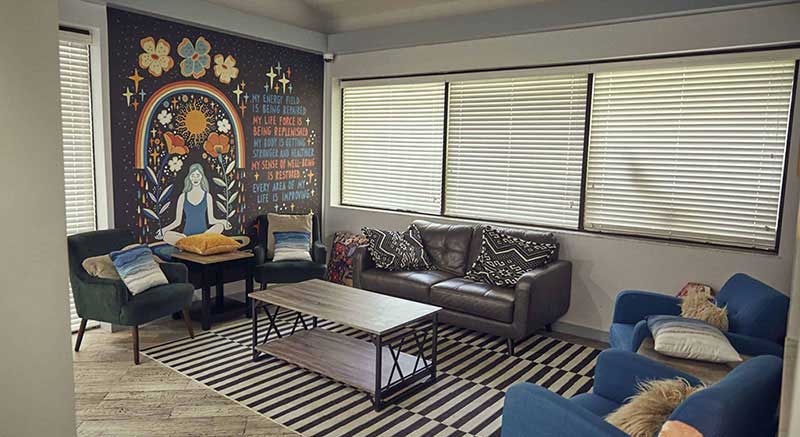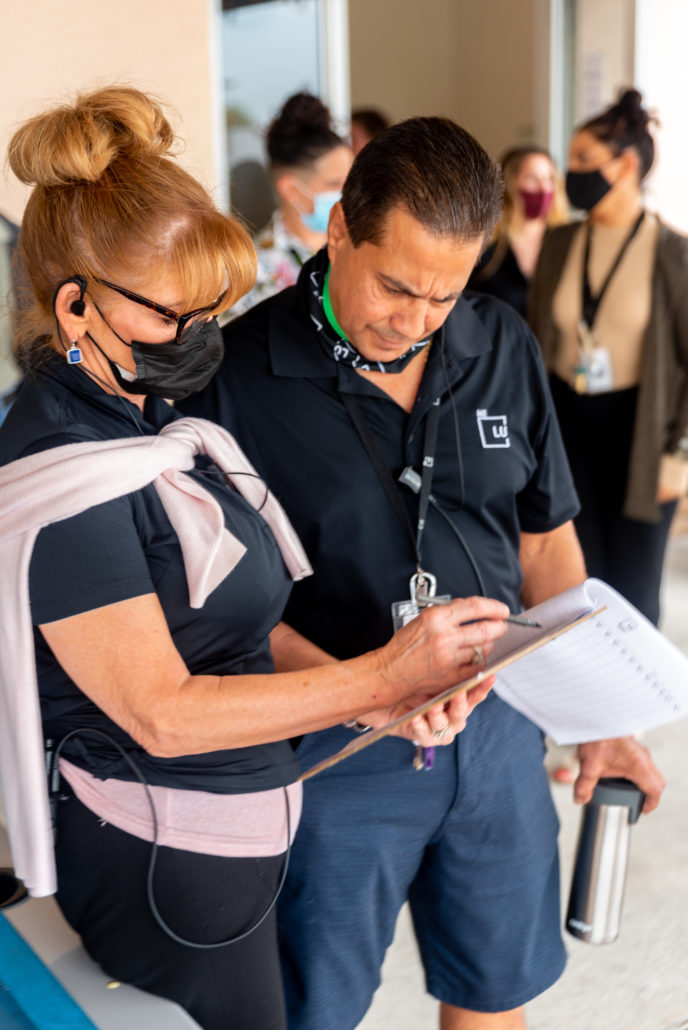What is the Social Model Of Addiction Treatment?
Social Model Of Addiction Treatment has become one of the most common forms of treatment used in a modern rehab center today. The social model centers heavily on people helping people through their rehabilitation and recovery from some form of addiction. These social principles were rooted in the foundations of Alcoholics Anonymous (AA) and other social programs centered on curing drug abuse or alcoholism. The social model of addiction treatment is helpful because it can help build confidence, self-esteem, and other vital skills for an individual trying to live a life of sobriety. People learn from others, so why should alcohol and drug addiction treatment be any different?
Peer support is essential to a variety of approaches to drug and alcohol problems. However, there is limited information about the best ways to promote it.
According to the National Center for Biotechnology Information (NCBI) [1], California’s “social model” approach offers useful suggestions for facilitating peer support in residential recovery settings.
Detox and substance-specific addiction treatment aren’t enough for long-term sobriety. Therefore, the social learning model of addiction and intervention is a crucial aspect of treating severe substance abuse disorders. [2]
Principles Of Social Model Of Addiction Treatment
- Using 12-step or other mutual-help group strategies to create and facilitate a recovery environment
- Involving program participants in decision-making and facility governance
- Using personal recovery experience as a way to help others
- Emphasizing recovery as an interaction between the person and their surroundings
Although limited in number, studies have shown favorable outcomes for social model programs. However, knowledge about the social model of addiction treatment and how to use it to facilitate peer support in residential recovery homes varies among providers.
Americans struggling with alcohol and drug addiction have access to a wide variety of recovery resources. Recovery programs and treatment centers use various addiction counseling techniques, treatment methods, and many therapy options to fight addiction and help people with substance abuse disorders live better, sober lives. The most widely accepted and one of the best methods is the social model of addiction treatment approach to addiction recovery.
While the Social Model Approach has huge support in the substance abuse treatment world, it is essential to remember that this approach is not a viable treatment method on its own. Various models and recovery options will improve the effectiveness of the Social Model of Addiction Treatment Approach, and these options work best as part of a continuum of addiction care. Individuals struggling with addiction hold the best chance of recovery when they get individualized treatment. The Social Model of Addiction Treatment Approach takes individual care a step further and helps people see how their addictions affect the lives of others.

Benefits Of The Social Model Of Addiction Treatment
Detox and alcohol and drug addiction treatment aren’t enough for long-term sobriety. The social learning model of addiction and intervention is a significant aspect of treating severe substance abuse disorders. When used in combination with other treatment programs and addiction therapies, the social model of substance abuse treatment can help clients permanently change their lives for good.

The Social Model Of Addiction Offers A Variety Of Benefits
- Encourages peer support and community with others in recovery
- Promotes permanent changes in attitude about treatment completion
- Highlights the importance of building a strong support system outside of rehab
- Underscores the need to make changes in habits and schedules after rehab to sustain sobriety
- Teaches the person new skills, hobbies, and behaviors that help those living in recovery
- Increases the individual’s confidence and motivation
- Prepares clients for life after rehab
Characteristics Of Social Model Of Addiction Treatment
- The social model acknowledges an interdependency between the individual seeking recovery from drugs and alcohol and the society
- Social model programs seek to build a social climate favorable to recovery, not everyone who needs recovery will be admitted
- Social model programs understand experiential knowledge as the basis of authority
- Social model programs encourage individuals to consider recovery a lifelong learning process
- Management is vested in participants, staff act as guides or coaches
Social model programs promote a homelike, rather than institutional atmosphere - The main therapeutic relationship is between the person and the program
- Everyone both receives and gives help
- The basic principles and dynamics of Alcoholics Anonymous constitute the fundamental framework.
- Social model programs, in the spirit of AA, consider recovery “a gift of God” that affects one’s spiritual and mental life and all relationships with others.
Vision Statement Of Social Model Of Addiction Treatment
Social Model Recovery Systems envisions a world where communities can pursue social, economic, educational, and spiritual wellness free from alcohol, other drugs, and mental health problems.
Mission Statement Of Social Model Of Addiction Treatment
- To create environments promoting recovery, personal responsibility, and mutual self help
- To help communities prevent and reduce alcohol, other drug, and mental health related problems through positive social change
- To share research and knowledge through training, consultation, and educational initiatives
- To maintain fiscal strength which ensures quality, growth, and the ability to serve all people in need
- To provide cost-effective services that achieve the best and highest use of public and private resources
Inpatient And Outpatient Social Models Of Addiction Treatment
The social model of addiction treatment as promoted in recovery homes can help a person struggling with addiction make lasting and positive changes in their lifestyle to help them better cope with patterns that led to alcohol and drug abuse. The idea is to show, or demonstrate, a positive and alcohol-free, drug-free, non-dysfunctional way of life within a recovery home.
However, the social model of addiction treatment is not limited to inpatient or residential rehab programs within treatment facilities. There is also a non-residential social model of addiction treatment programs where people struggling with alcohol or drugs can participate as outpatients. These are typically community-based programs that provide a supportive and sober environment. Often, services are provided to outpatients or members who have alcohol- or drug-related issues. A community-based program might also teach the public and neighboring community concerning such issues in order to defeat addiction problems, including drug addiction or alcoholism.

Social-community models provide a structure that an individual may use to rebuild her or his life after struggling with alcohol or drugs. These programs are mostly self-sustaining and depend on individual contributions to the benefit of the group. For example, residential recovery homes are a wonderful transition between inpatient addiction treatment and returning to “normal” life. Residential recovery homes are widely considered the “original” social model for substance abuse recovery, and these homes are still relevant in today’s substance abuse treatment world.
Benefits Of Social Support With Us
Social support is one of the most important components of the substance abuse recovery journey. All recovery experts advise that any person recovering from substance abuse should find ways to get quality social support. This support helps a person to be more successful in living a sober life.
One can get great social support from family members, an anonymous recovery group, their halfway house, or any sober community. The social networks need to be aware of the challenges that one is going through to offer tender and empathetic support.
In a halfway house, treatment center, or an anonymous support group, one witnesses success stories. One can see a person recovering from addiction live a sober life, get a decent job and lead a fulfilling and meaningful life. This creates motivation for the other recovering clients in our program. And despite their common challenges, they can also lead a sober and fruitful life moving forward.
If you or someone you love is struggling with alcohol or drug addiction, get them the safest help they need and deserve. Learning how the social model of addiction treatment can benefit someone with alcohol and drug addiction means acknowledging that you can’t do it alone.
Find the right treatment for secondary to addiction
Inpatient medical detox and residential primary addiction treatment may be available at our affiliated facility at Level Up West Palm Beach Rehab. For some primary behavioral health treatment clients, medical detox and or addiction rehab may be required first. If you have a co-occurring severe substance abuse diagnosis, please contact us prior to beginning inpatient mental health therapy. Treatment services may vary. Please call us to learn which treatment options are most suited for your individual needs.
Check out our Fort Lauderdale Rehab Center too.
Sources
[1] NCBI – https://www.ncbi.nlm.nih.gov/pmc/articles/PMC4220294/
